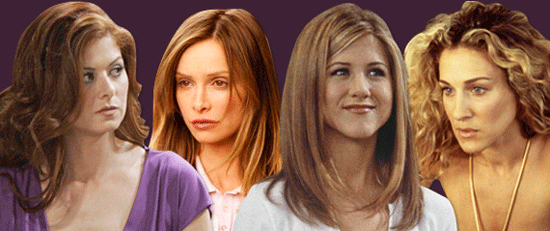|
查看原文
"You're so great -- why don't you have a boyfriend?"
This misguided compliment, often doled out to young successful women, has given birth to a new thought experiment: If a woman is great and no romantic partner is there to appreciate her, can she still lead a happy and fulfilling life?
Since 2000, the most common American household has been a person living alone. According to the 2012 census, 53.6 percent of American women over the age of 18 were unmarried. So why do singles often feel like the odd woman out?
We may be living in a post-"Sex And The City" era, but we're not as far from the conventions of "The Partridge Family" as we'd like to think (and it's worth noting that even SATC's cynical Miranda had her fairytale romantic ending when all was said and done). Over the last 15 years, we've watched pop culture heroines like Mindy Lahiri, Meredith Grey and Ally McBeal put their professional accomplishments on the back burner when things go south in the romance department. It's not hard to see where these television writers are getting their material: Women often feel bad about being single, despite how satisfying their lives are otherwise.
Turns out, there are a few reasons you might feel that romantic ennui:
You might be putting too much stock in one type of relationship...
Unfortunately, it's all too easy to devalue our platonic relationships when we don't have a romantic one (if we want one, that is), but that doesn't mean we're not reaping the psychological benefits of all of the platonic love in our lives. In fact, when it comes to happiness, it seems that love is blind.
The Harvard Grant Study, one of the most comprehensive longitudinal studies on happiness, followed 268 male Harvard undergraduates for 75 years to see just what brought them joy. After nearly a lifetime of tracking, researchers discovered that fulfillment was overwhelmingly found in one thing: relationships -- but not necessarily romantic relationships.
"Joy is connection," George Vaillant, the Harvard psychiatrist who directed the study from 1972 to 2004, told The Huffington Post last year. "The more areas in your life you can make connection, the better."
Great news, right? Unfortunately, this concept isn't exactly common knowledge, and single women often feel that their many loving, albeit platonic, relationships are discounted. Ann Friedman, a freelance journalist who pens a column for NYMag.comabout gender and has shared her adventures in being "deep single" in Marie Claire, told HuffPost Women that her attitude about partnerships -- one that eschews the "marriage o'clock" concept in lieu of a more laissez-faire approach to life and relationships -- has garnered such responses as: "You've given up on the idea of love"; "Wow, you seem so well-adjusted in other ways"; or even worse, "You've grown so depressed with the state of the American male that you've opted out completely."
"I was like, 'Honestly, I'm really, really cool with what I have going on right now,'" Friedman said. Her outlook is obviously not one-size-fits-all, but it's never a bad idea to stop and appreciate the wonderful relationships we do have in our lives, whether or not they fit neatly into a romantic box. Just ask Dr. Bella DePaulo, author of Singled Out and a permanent Visiting Professor of Psychology at the University of California, Santa Barbara.
"What people sometimes overlook when they say 'If you're single, you're alone' is the possibility that if you're single, you may have friendships that you pay a lot of attention to," DePaulo told HuffPost Women. "In fact, you might have more support than someone who gets married and only pays attention to their spouse and puts all of their friends on the back burner."
...or you may not be prioritizing what you really want.
Allowing what other people want for you to cloud your judgement can also send you down that dark, "I'm dying alone" spiral. Global surveys have found that cultural norms and expectations are what determine our self-esteem, even if we claim we're above the pressure. When it comes to single women, this dual mentality can get tricky. The (obvious) truth is that marriage -- or even long-term couplehood -- won't make everyone happier.
"I think that we are in a society that just so celebrates marriage," DePaulo said. "There's almost no voice for people who want to stay single and are doing just fine."
This "matrimania," DePaulo's term for the over-the-top hyping of marriage and weddings, can be especially problematic when you factor in all of the complexities of romantic relationships that can come before marriage. "The cohabitation gap," a term coined by researchers in 2011, describes the phenomenon of married couples being happier than non-married couples who live together. Why? Here's how the researchers put it:
"We can speculate that in such societies, people tend to believe that a woman lives together with her partner out of wedlock not because she doesn't want to marry him but because he doesn't want to marry her. The society's doubts in the commitment of her partner makes a cohabiting woman pitied and looked down upon, which could be detrimental for her self-esteem and psychological well-being regardless of her own perception of her partner's commitment."
Oy vey. Anecdotally, Friedman has experienced this condescending attitude towards single or unmarried women.
"Really great things happened to me in my life during this period when most people were kind of pitying me," she said of a being single -- a period during which her career took off, she took her dream vacation and her social life became more dynamic than ever. "But there was always this undercurrent of, 'Don't you want to meet someone?'"
This specific breed of patronizing led freelance writer Sara Eckel to pen a Modern Love column for the New York Times in 2011 (and eventually a fantastic book) on the topic, to explain to women what she says we essentially already know: that there's nothing to "fix" -- single women are fine as they are.
"I realized I was building up this resentment towards this condescension," she told HuffPost Women. "Because there was this very strong part of me that knew I'm just as good as married people."
And those fear-inducing headlines aren't helping.
"It's amazing how year after year after year, people are making this claim that if you get married, you'll get happier," DePaulo said.
She explained that many of those academic studies that make for splashy, fear-inducing headlines aren't procedurally sound (see: her review of 18 long-term studies on the topic). The main problem is that conditions in clinical studies have to be randomly assigned -- which isn't possible when you're researching single vs. married people. Another "methodologically shameful" tactic in these studies, she explained, is that many only compare those who are currently married to single people and completely ignore those who got married, hated it and got divorced.
Then, of course, there are media figures like "Princeton Mom," who shame single women for not prioritizing dating, husband-finding and the like.
"I find it so confusing that whenever someone has a message that makes women feel bad, they're immediately on 'The Today Show'; they immediately have a platform," Eckel said. "You don't see the narrative of, 'Yah, I had a wild time in my 20s and now I'm 35, married with two kids and really happy.' It's always the cautionary tale."
As a result, many women are put off by the public discourse on singledom and marriage -- and the Noah's Ark-like frenzy it's intended to spark.
"People would be like, 'Are you dating?' To me, that was like, 'Do I hike? Am I writing?' Is dating an activity?" Friedman said. "Going on a bunch of dates with random people doesn't seem like a smart use of my time. That made a ton of sense to me -- I realize that it doesn't make a ton of sense to everyone."
Moral of the story?
Yes, you're still "great" and more than capable of living a happy, fulfilling life, whether or not you're involved with someone romantically. But also know that feeling waves of self-doubt and insecurity are totally normal. You may never want to get married or even be monogamous -- or you may be open to the possibility of meeting someone without actively looking for a relationship.
With barely half of US adults married as of 2011 (a record low, according to the Pew Research Center) and delayed marriage on the rise (the median age for women at first marriage in 2011 reached 27, a record high), the conversation about singles is shifting. Considering the ever-growing population of women living abundantly happy lives without a partner, how could it not?
"All of this 'matrimania' isn't happening because we're so secure about the place of marriage in our lives," said DePaulo. "It's happening because we're so insecure."
Of course, downplaying the special role that marriage plays in many people's lives isn't the answer, either. Rather, it's important to recognize that some people find happiness with a partner later in life or in a more unconventional form of coupledom.
According to Pew's 2010 stats, 84 percent of unmarried people cite "love" -- rather than "making a lifelong commitment," "companionship," "having children" or "financial stability" -- as the reason to get married. Perhaps women are starting to feel empowered to only jump into matrimony on their terms, rather than relying on perceived cultural norms. Take a look at Hannah Horvath on "Girls" or Liz Lemon on "30 Rock," and you'll see that pop culture is already helping to redefine what it means to be single in contemporary society.
All of this awareness, however, won't always assuage all of your fears and insecurities, and that's OK. As Eckel points out in her book, "If you feel sad sometimes, it's not because you're single -- it's because you're alive."
Obviously, not every single woman feels bad about her relationship status, so this statement merely applies to those who do.
|
查看译文
“你这么好,为什么没有男朋友?”
年轻的成功女性常常听到这类虚假的恭维。但这恭维却催生了实验的新思路:如果一个完美女性没有浪漫的伴侣欣赏她,她还能否拥有一个快乐完整的人生呢?
从2000年起,美国最常见的家庭就是一个人独居。2012年的人口普查显示,53.6%的美国成年女性未婚。那么为什么女性单身却总会被视作被“剩下”呢?
也许我们现在正处在“后《欲望都市》时代”,但我们并不像我们所想的那样,离《鹧鸪家族》中的生活那么遥远。(值得注意的是,即便是《欲望都市》愤世嫉俗的米兰达在一切尘埃落定后,也有童话般浪漫的结局。)在过去的15年里,我们目睹了流行文化中的女主角,像《剩女的浪漫生活》,《实习医生格蕾》,《甜心俏佳人》中的女主人公那样,当她们情感受挫,就会将自己的事业成就搁置。不难看出,编剧们想表达这样一个观念:女性总觉得单身很糟糕,尽管从别的方面看,她们的生活其实一帆风顺。
实际上,你可能因为很多原因厌倦恋人:
你可能会在一段关系上下太多赌注
不幸的是,当我们没有对象时,我们总是太容易贬低爱情(如果我们想恋爱的话,就不是这个情况了),但那不意味着我们在恋爱中得不到好处。事实上,爱情总是盲目而快乐的。
关于快乐最全面的纵向研究之一是哈佛大学授予的一项研究。这项研究跟踪了268名哈佛本科毕业生75年之久,旨在调查他们快乐的源头。研究发现快乐的人生很大程度上取决于一件事:那就是人际关系——但这不仅仅指恋爱关系。
哈佛大学精神病学家乔治·瓦力恩特在1972至2004年期间指导了这项调查研究,他去年告诉郝芬顿邮报:“快乐是在与人交往的过程中产生的,人际关系越全面越好。”
好消息,不是吗?不幸的是,这并不受大家的认同。很多单身女性认为她们的许多段感情,尽管是柏拉图精神恋爱,都是打折扣的。安·弗里德曼是纽约杂志网站性别专栏的自由撰稿人,她分享了自己在《美丽佳人》杂志社的单身经历。她告诉赫芬顿邮报女性专栏关于她自己对伴侣的态度——伴侣是避开婚姻临界点,从而可以使自己有放任自由的生活方式的人。但对这个态度,周围的人却这样回答——“你已经放弃了爱情”;“哇,你真特别”;或者更糟糕的是,“你对美国男人都绝望了吗,所以不想选择和他们在一起吗?”
弗里德曼表示:“坦白说,我觉得自己这样很酷。”她的观念显然不能被所有人接受,但这不失为一个好想法,那就是我们应该停下来欣赏我们在生命里所拥有的美好人际关系,不管它们是不是恋爱关系。不妨看看蓓拉·迪波洛博士的说法。蓓拉·迪波洛博士是《单身,不是你想的那样》一书的作者,同时也是加利福尼亚大学圣巴巴拉分校永久客座心理学教授。
“当人们说:‘如果你单身,你一定很孤独’时,他们忽视了单身人士可能将更多精力放在经营友谊从而获得更多友情的可能性,”迪波洛告诉赫芬顿邮报女性专栏:“事实上,单身人士比起那些只关注结婚伴侣而忽视所有朋友的人,可能会拥有更多的依靠。”
或者,你可能不会优先考虑你真正想要什么
成为一个别人希望你成为的人可能会掩盖你自己的真实愿望,也可能将你送入“我将孤独终老”的黑暗漩涡。全球调查发现,即使我们声称自己并没有受到来自传统观念的压力,传统文化规约与期望仍然是决定我们自我尊重的重要因素。对于单身女性来说,自尊与遵循传统是两难的。事实是,婚姻(抑或是长期的同居关系)并不会让每个人更快乐。
“我觉得我们的社会还是崇尚婚姻的,”迪波洛说道:“没有人是不想结婚并能过得很好的。”
“婚姻热”是迪波洛对人们过度强调婚姻与婚礼的情况做出的定义,然而,当你婚前经营恋爱关系,应对各种复杂的问题时,这个定义就不太适用了。“同居缺口”是研究人员在2011年提出的概念,它描述了结婚夫妻比未婚同居夫妇更加快乐这一现象。这是为什么呢?来看看调查人员是怎么说的:
“我们很清楚的知道,在现在这个社会,如果一个女人与人未婚同居,人们倾向于认为是男性不愿意结婚。这种对男性的疑虑会导致人们对同居女性的贬低轻视,不管女性是否相信自己伴侣的承诺,这种社会的普遍认识对女性的自尊和心理健康都是有害的。
噢,有趣的是,弗里曼自己也经历过人们对单身或未婚女性的贬低态度
“当大多数人同情我单身的时候,我的经历其实非常棒,”她说起自己的单身时期——那是她事业腾飞的时候,她在自己梦想的领域大展拳脚,同时,她的社交生活也丰富多彩,“但总有人问我,你不想找个对象吗?”
这种特别的自豪感使得自由撰稿人萨拉·埃克尔于2011年就这个话题为《纽约时报》写了一个“现代爱情”专栏(后来出版成书),她向女性解释了一些我们现在已经知道的事:没有什么是一成不变的,单身女性也可以过得很好。
“我意识到我对别人的怜悯感到越来越愤怒,”她告诉赫芬顿邮报女性专栏:“因为我真的认为我和那些结婚的人过得一样好。”
迪波洛说道:“很奇怪,年复一年,人们仍然宣称结婚能让人变得更快乐。”
她解释说很多学术研究只是为了制造引人注目、让人心惊胆战的新闻头条。但从研究的程序来说,这些调查并不可信。(她评论了关于这个话题的18份长期调查报告)。这些调查存在的主要问题是:临床调查必须是随机的,但调查单身人士和已婚人群时,这种随机显然无法实现。她还提到:“另一个方法上的错误在于很多人仅仅将刚刚结婚的人和单身人士作对比,而完全忽视那些曾经已婚,后来厌恶婚姻,到最后离婚的人。”
当然,有些媒体比如“普林斯顿妈妈”会为单身女性不约会,不找对象诸如此类的行为感到羞耻。
“我觉得很疑惑,不管什么时候只要有人得到可以让女性觉得很糟糕的信息,他们就立即放在《今日秀》节目中,他们立即就有一个平台可以大肆宣扬,”埃克尔说道:“你不明白诸如‘我20岁时有着疯狂的岁月,但是我现在35岁了,结了婚,有两个孩子,我过得很快乐’的叙述对别人的警示作用有多大。”
因此,很多女性被一些关于单身与婚姻的公开演说及演说想到达的“诺亚方舟”似的狂热所阻碍。
“人们总是会问‘你约会了吗?’但对我来说,更应该是,‘我有没有爬山?我有没有写作?’约会是一项活动吗?”弗里曼说道:“和随便什么人约会会占用我大量的时间。那些时间对我来说很重要,但我也意识到很多人并不是这么看的。”
本文的意义
是的,不管你有没有男朋友,你都很出色,并且有足够的能力过一个很快乐,很完整的人生。但是自我质疑和缺乏安全感是很常见的。也许你从没想过结婚甚至是过一夫一妻制的生活——也许你不排斥与某人约会,却不主动建立关系。
2011年仅仅一半的美国成年人结婚(皮尤研究中心的研究数据显示,这项纪录达到新低),同时,初婚年龄也在往后推(2011年女性第一婚的年龄中值在27岁,这个记录比以往高),对单身的态度也在快速改变。鉴于越来越多的单身女性过着快乐的生活,这个转变再正常不过了。
“婚姻狂热”现象的出现并不由于我们多能保证婚姻在我们生活中的重要作用,”迪波洛说道:“相反,这是因为我们不确定我们能否脱离婚姻独自生活。”
当然,忽视婚姻在许多人生活中的重要角色也是不对的。但对人们来说,重要的是他们能够意识到有些人可能比较晚才能遇到心仪对象,有些人可能不喜欢以传统的婚姻方式生活,但是他们仍然过得很快乐。
皮尤研究中心2010年的数据显示,80%的人用“爱”,而不是“一生的承诺”,“陪伴”“有孩子”,“经济稳定”作为结婚的理由。也许女性已经开始意识到了是否结婚是由自己决定的,而不是受传统的规约驱动。看看《都市女孩》中的汉娜·霍瓦特和《我为喜剧狂》中的利兹·雷蒙,你就会发现流行文化已经在重新定义什么是现代社会的“单身”了。
然而所有的这些不会永远缓解你的恐惧和不安全感,但那是正常的。就像埃克尔在她书中说的那样:“如果你有时感到难过,这并不因为你单身,而是因为你活着。”
显然,不是每个单身女性都觉得自己很糟糕,糟糕只能用来形容那些确实很糟糕的人。
(译者 lcwujing 编辑 丹妮)
相关阅读
科学教你如何“快乐厮守到老”
扫一扫,关注微博微信
 
|

